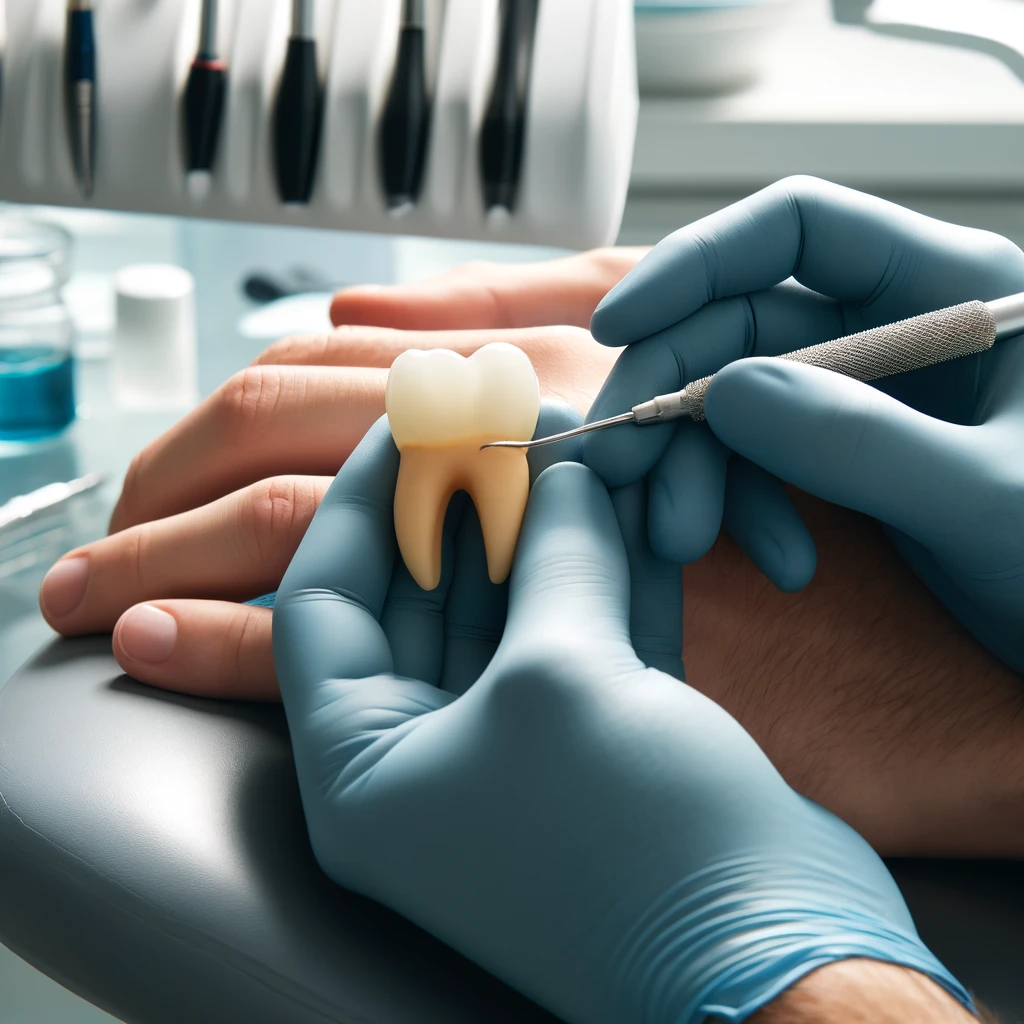

How Often Do Dental Crowns Need to Be Replaced?
How often do dental crowns need to be replaced? Generally, dental crowns can last anywhere from 5 to 15 years, depending on factors like oral hygiene and wear and tear.
Average Lifespan of Dental Crowns

The average lifespan of dental crowns typically ranges from 10 to 15 years, although some can last even longer with proper care. The durability of a dental crown largely depends on the material used, the location of the crown in your mouth, and your oral hygiene habits. Regular dental check-ups and maintaining good oral health can significantly influence how long your dental crowns will last. Understanding the factors that affect the longevity of dental crowns is essential for anyone who has them.
For more detailed information on maintaining your crowns, you can visit our page on How to Take Care of Dental Crowns and Make Them Last. By being aware of these factors, you can better appreciate the importance of good dental practices in extending the life of your dental crowns.
Factors Affecting Crown Longevity

The lifespan of dental crowns can vary significantly based on several factors. One of the primary considerations is the material used in the crown's construction. Different materials, such as porcelain, metal, or a combination of both, have varying levels of durability and resistance to wear and tear. Additionally, the skill and experience of the dentist performing the procedure can also play a crucial role in how long a crown lasts. Proper fitting and placement are essential to ensure that the crown functions correctly and endures the pressures of daily use.
Another important factor is the patient's oral hygiene habits. Regular brushing, flossing, and dental check-ups can help maintain the integrity of the crown and prevent issues such as decay or gum disease that could compromise its longevity. Lifestyle choices, including diet and habits like teeth grinding or clenching, can also impact how long a dental crown remains effective. For those in need of high-quality dental care, consider exploring Affordable Dental Crowns Westfield for more information.
Types of Dental Crowns
Dental crowns come in various types, each with unique characteristics and benefits. Common types include porcelain crowns, which are known for their natural appearance and are often used for front teeth; ceramic crowns, which offer a similar aesthetic appeal and are also metal-free; metal crowns, typically made from gold or other alloys, known for their durability and strength; and porcelain-fused-to-metal (PFM) crowns, which combine the natural look of porcelain with the strength of a metal structure. Each type of dental crown has its own lifespan and maintenance requirements, which can influence how often they need to be replaced.
Signs a Crown Needs Replacement
Dental crowns are designed to be durable, but over time, they may show signs of wear and tear that indicate the need for replacement. Common signs include persistent pain or discomfort in the crowned tooth, visible cracks or chips in the crown, and a noticeable gap between the crown and the gum line. Additionally, if you experience sensitivity to hot or cold temperatures or if the crown feels loose, it may be time to consider a replacement. For those in the Westfield area, Westfield Smiles is a trusted Westfield Dentist that can help assess the condition of your dental crowns.
Impact of Oral Hygiene
The longevity of dental crowns is significantly influenced by the quality of one's oral hygiene. Consistent and thorough oral care practices can help maintain the integrity of both natural teeth and dental restorations, including crowns. Poor oral hygiene can lead to issues such as decay and gum disease, which may compromise the stability and lifespan of a dental crown. Therefore, maintaining good oral health is crucial for ensuring that dental crowns remain functional and aesthetically pleasing for as long as possible.
Role of Dental Check-Ups
Regular dental check-ups play a crucial role in determining the longevity of your dental crowns. During these visits, your dentist can assess the condition of your crowns, identify any signs of wear or damage, and provide professional cleanings that help maintain your overall oral health. Consistent check-ups allow for early detection of potential issues, such as decay or gum disease, which can compromise the integrity of your crowns. By adhering to a routine schedule of dental appointments, you can significantly extend the lifespan of your dental crowns and ensure they remain functional and aesthetically pleasing for years to come.
Material Durability and Wear
The longevity of dental crowns is significantly influenced by the material from which they are made. Porcelain crowns, for instance, are known for their natural appearance but may wear down faster compared to metal or porcelain-fused-to-metal options. Gold crowns, while less aesthetically pleasing, offer exceptional durability and can last for decades with proper care. Zirconia crowns strike a balance between aesthetics and strength, making them a popular choice for many patients.
However, regardless of the material, the lifespan of a dental crown can be greatly extended with good oral hygiene practices. Regular brushing, flossing, and dental check-ups help prevent decay and gum disease, which are common reasons for crown failure. Therefore, maintaining excellent oral hygiene is crucial for maximizing the durability and wear resistance of your dental crowns.
Influence of Eating Habits
Your eating habits play a significant role in determining how often dental crowns need to be replaced. Consuming hard or sticky foods can put undue stress on your crowns, leading to cracks or dislodgement. Additionally, a diet high in sugary or acidic foods can contribute to tooth decay around the crown, compromising its integrity. To extend the lifespan of your dental crowns, it's advisable to maintain a balanced diet and avoid foods that could potentially damage them.
Regular dental check-ups can also help identify any issues early, ensuring your crowns remain in optimal condition for as long as possible.
Influence of Eating Habits
Your eating habits play a significant role in determining how often dental crowns need to be replaced. Consuming hard or sticky foods can put undue stress on your crowns, leading to cracks or dislodgement. Additionally, a diet high in sugary or acidic foods can contribute to tooth decay around the crown, compromising its integrity. To extend the lifespan of your dental crowns, it's advisable to maintain a balanced diet and avoid foods that could potentially damage them.
Regular dental check-ups can also help identify any issues early, ensuring your crowns remain in optimal condition for as long as possible.
Conclusion
For more information, call us at 908-233-9280 or check out our Google Maps reviews.
contact us
Call 908.233.9280 or request an appointment online to set up your first visit.
